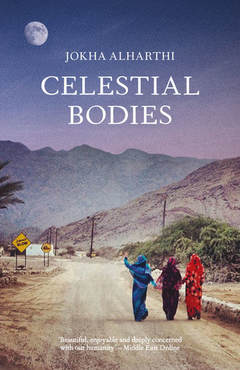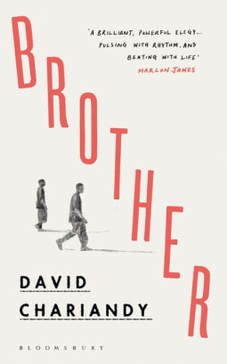Celestial Bodies by Jokha Alharti
translated by Marilyn Booth
Although fortunate in being able to choose the woman he would marry, he was unaware that she’d pledged her heart to another man and, while culturally romantic love was not part of the contract, her emotional distancing pained him. But she did give him three children, although their daughter’s short-lived marriage to a man who hit her, and their younger son’s developmental difficulties, diagnosed as autism, brought further heartache.
While Abdallah’s sadness, expressed in a first-person narrative, seemed to me the heart of the novel, it isn’t mentioned in the blurb. This focuses instead on Abdallah’s wife, Mayya, and her two sisters whose different routes to marriage reflect the conflict between tradition and modernity in a society still shaking off its colonial past. This strand of the novel, encompassing also the girls’ parents, a former slave and the father’s Bedouin lover, unfolds in the third person interspersed with Abdallah’s chapters.
As with the recently reviewed Miss Burma, my enjoyment of this novel was lessened by a distancing from the multiple characters, especially the women, despite my curiosity about the culture. It’s a pity it didn’t engage me more as I’m pretty sure this is the first Omani-set novel I’ve read. Thanks to Sandstone Press for my review copy.
Brother by David Chariandy
Michael wants to emulate his streetwise brother, but lacks the style and confidence to pull off the swagger. As her firstborn, their mother also has a soft spot for Francis but, as the gap widens between his aspirations and hers for him, the tension escalates at home. Francis finds friendship, acceptance and a passion for music, with Jelly and the other men and boys who hang around the local barbershop, a place that’s often raided by police.
The novel is narrated by Michael, ten years on from the tragedy that cut short his brother’s life. Their mother seems to have never recovered, and Michael works a dead-end job to be close by if and when things get too much. But their dampened-down existence is disturbed by the arrival of his childhood friend, Aisha, one of the few who has managed to escape the confines of the community.
As Michael looks back on the history of his family, and Aisha reconnects with her roots, the reader wonders if they’re dashing towards deeper disaster, or if this will be the catalyst to moving on. David Chariandy’s second novel is a gentle story about violence: the violence of discrimination and inequality that leaves little room for manoeuvre between the extremes of apathy and rage. Thanks to Bloomsbury for my review copy.























 RSS Feed
RSS Feed





















